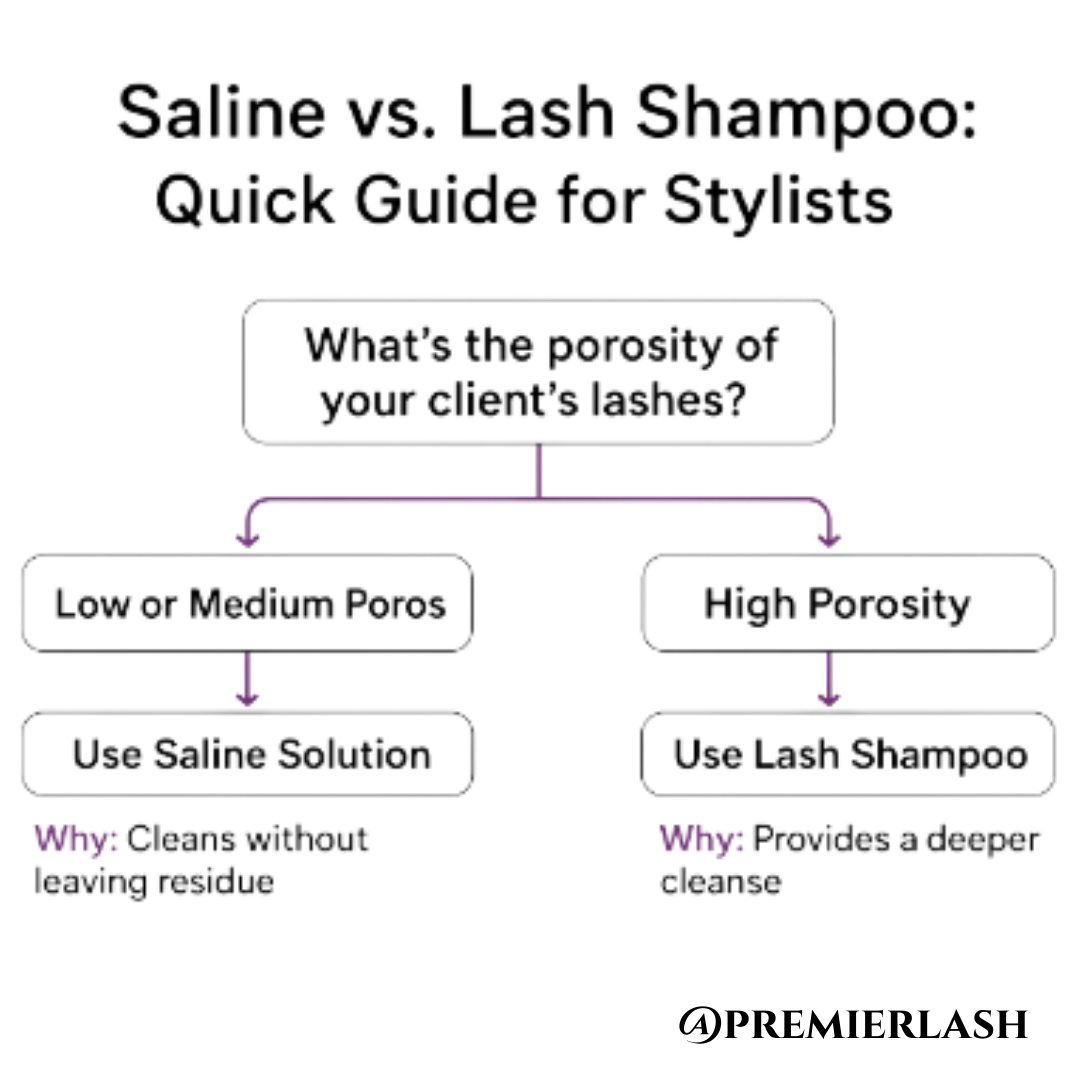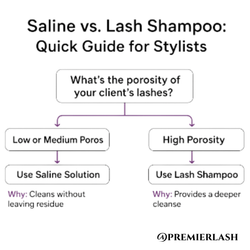Saline VS Lash Shampoo: Which To Use For Lash Prep?
Sep 1st 2025
Saline VS Lash Shampoo: Which To Use For Lash Prep?
1. Saline Solution (Sterile, Preservative-Free 0.9% NaCl)
Best for:
- Low Porosity Lashes → already resistant to adhesive; saline gently removes oils without over-drying.
- Medium Porosity Lashes → creates a perfectly clean surface before bonder.
- Sensitive Clients → saline is tear-mimicking and gentle.
Why: Cleans without leaving residue. Keeps the cuticle flexible for bonder to penetrate and support retention.
Pro Tip: Use single-use vials to avoid contamination. Apply with lint-free applicators, not cotton (which can snag).
2. Lash Shampoo (Foaming Cleanser, Lash-Safe Formula)
Best for:
- High Porosity Lashes → cuticles are already open, so the focus is on removing buildup and impurities.
- Clients with Makeup, Heavy Skincare, or Oily Lids → breaks down residue that saline alone may not remove.
- Prevention of Blepharitis & Eye Health → keeps lash line clear of debris and bacteria.
Why: Provides a deeper cleanse than saline. Prepares porous lashes for a stronger adhesive lock without over-stripping.
Pro Tip: Always rinse thoroughly with distilled water or saline after shampoo to avoid leftover surfactants.
Decision Flow (Quick Guide for Stylists)
- Low Porosity: Saline → Bonder (skip shampoo unless visibly dirty).
- Medium Porosity: Lash Shampoo if buildup → Rinse → Saline → Bonder.
- High Porosity: Lash Shampoo → Rinse → Saline (optional) → Proceed with adhesive.
So in practice:
Saline = finishing prep + oil removal
Shampoo = deep cleanse + debris removal
Together, they give you control over porosity and cleanliness without relying on primer.

